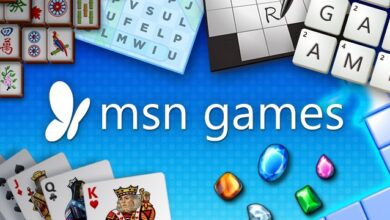
Lottery Game Development
lotterygamedevelopers.com represents a distinct niche within the broader gaming industry, characterized by unique design principles, regulatory considerations, and engagement strategies. Unlike traditional games, which often prioritize skill and strategy, lottery games typically rely on chance and randomness, appealing to a wide audience drawn by the thrill of potential rewards. One of the key elements of lottery game development is the incorporation of random number generators (RNGs), ensuring fairness and unpredictability, vital for maintaining user trust.
In recent years, the popularity of digital lottery games has surged, significantly transforming how players engage with lottery concepts. This increase can be attributed to several factors, including technological advancements and shifts in consumer behavior. Many developers are harnessing innovative technologies such as mobile apps, online gaming platforms, and blockchain to create immersive experiences that not only attract new players but also retain existing ones. These platforms enhance user experience by providing convenient access to games, offering personalized content, and facilitating real-time usage analytics.
The global landscape of the lottery game market is evolving rapidly, shaped by diverse regulatory environments and emerging market players. Established lottery organizations are now competing with startups that utilize cutting-edge technology to create engaging lottery experiences. The integration of gamification elements, such as leaderboards and social features, is becoming commonplace, helping to foster community among players. Furthermore, the impact of globalization on lottery game development is profound, allowing developers to explore international markets while adhering to local regulations and preferences.
As the lottery game sector continues to adapt and grow, developers face the ongoing challenge of balancing innovation with compliance, ensuring that their offerings meet the diverse interests of players while remaining within legal frameworks. The future of lottery game development promises to be dynamic, ushering in new opportunities and experiences for players worldwide.
Key Features of Successful Lottery Games
The success of lottery games is significantly influenced by several essential features that enhance player experience and retention. One of the primary elements is engaging gameplay mechanics. Well-designed lottery games typically incorporate dynamic elements such as progressive jackpots, multipliers, or themed events that pique player interest and keep them coming back for more. These features create a sense of excitement and anticipation, which are critical for maintaining long-term player engagement.
Another vital characteristic is a user-friendly interface. A streamlined and intuitive design allows players, regardless of their technological proficiency, to easily navigate the game. This simplicity not only enhances the overall gaming experience but also ensures that players can access vital information, such as prize structures and rules, without confusion. A user-friendly experience is essential for fostering an inclusive gaming environment that attracts a broader audience, ultimately contributing to the game’s success.lotterygamedevelopers.com
Security features also play a crucial role in the success of lottery games. Players need to feel confident that their personal information and financial transactions are protected. Implementing robust security measures, such as encryption technology and secure payment methods, helps to build trust and credibility within the player community. This trust is vital for player retention, as players are more likely to return to games that prioritize their safety lotterygamedevelopers.com and privacy.
Additionally, innovative prize structures can elevate the appeal of a lottery game. By offering diverse prize options, tiered rewards, or chances to win additional bonuses, developers create a compelling reason for players to participate. Such innovations not only improve player satisfaction but also amplify the social aspect of lottery games, lotterygamedevelopers.com as players may share their experiences and encourage others to join. As lottery game developers continue to innovate, the ongoing integration of these critical features will be essential in nurturing a loyal player base.
Technological Innovations in Lottery Game Development
The landscape of lottery game development is undergoing a significant transformation due to various technological advancements. Central to this evolution is the integration of blockchain technology, which promotes transparency and security in the gaming process. By utilizing decentralized ledgers, lottery operators can ensure that every transaction is accurately recorded, providing players with verifiable proof of fairness. This added layer of trust is vital for attracting new users, especially in a market increasingly scrutinizing fairness in gambling practices.
Furthermore, artificial intelligence (AI) is revolutionizing the way lottery games are designed and played. AI algorithms can analyze vast amounts of player data to create personalized gaming experiences. For instance, AI can predict player preferences, allowing developers to tailor game features, promotions, and user interfaces accordingly. This results in more engaging games that not only retain existing players but also draw in new ones through targeted marketing strategies. A prominent example of this is seen in companies that dynamically alter game offerings based on real-time analytics lotterygamedevelopers.com .
Mobile technology is another cornerstone of innovation in the lottery sector. With the proliferation of smartphones, accessibility to lottery games has surged. Many developers are creating mobile-optimized platforms, enabling players to engage with lottery games anytime and anywhere. lotterygamedevelopers.comThis increased convenience has led to higher participation rates, particularly among younger demographics. Enhanced mobile applications also incorporate features like instant notifications for draw results and new game launches, keeping players continuously engaged.
In conclusion, the interplay of blockchain technology, artificial intelligence, and mobile access is revolutionizing lottery game development. These advancements not only improve transparency and user experience but also ensure that the industry adapts to the evolving demands of players. As the technology continues to advance, the future of lottery gaming appears increasingly promising.
Understanding the Regulatory Landscape
The regulatory environment surrounding lottery game development is multifaceted and varies significantly across different regions. This complexity necessitates that game developers possess a comprehensive understanding of the legal requirements and licensing obligations in the jurisdictions where they operate. Key aspects of these regulations include age restrictions, consumer protection laws, and financial reporting requirements, all aimed at ensuring a fair and safe gaming experience.
Developers must secure appropriate licenses before launching their products, which typically involves a rigorous application process. Licensing bodies assess compliance with local laws, including the issuance of random number generators for fairness and transparency in gaming outcomes. For instance, in jurisdictions such as the United Kingdom, the UK Gambling Commission oversees regulatory requirements, while entities in other regions may have different governing bodies. These differences underscore the necessity for developers to tailor their approaches in accordance with local norms and standards.
Moreover, navigating the regulatory landscape is not merely a legal obligation but also critical for maintaining user trust. Ethical practices, such as responsible gaming initiatives and transparent communication about odds and payouts, must be integrated into the operational framework of these games. Consumers are increasingly discerning and demand greater accountability from gaming developers. https://lotterygamedevelopers.comBy adhering to compliance standards and implementing robust ethical practices, companies can foster a trustworthy relationship with their audience, ultimately contributing to their sustainability and success in the market.
In summary, the regulatory landscape presents both challenges and opportunities for lottery game developers. Through diligent adherence to legal requirements and a commitment to ethical practices, developers can enhance their credibility while contributing positively to the broader gaming ecosystem.
The Role of User Experience in Lottery Games
User experience (UX) plays a critical role in the success of lottery games, influencing player engagement and retention significantly. Effective UX design involves understanding the needs, preferences, and behaviors of players. This understanding facilitates the development of immersive gaming environments that not only attract new players but also encourage existing players to return. Through UX research methodologies such as user interviews, surveys, and usability testing, lottery game developers can gather valuable insights that inform design decisions, ultimately enhancing the overall gaming experience.
One of the fundamental aspects of UX in lottery games is the intuitive design of interfaces. Players should be able to navigate the game seamlessly, with clear calls to action and easily accessible information regarding rules, odds, and prizes. For instance, games like “Lotto 6/49” and “Powerball” exemplify how straightforward interface design elevates user experience. In these cases, the simplicity of ticket purchasing and prize claiming processes has proven effective, leading to higher satisfaction and engagement levels among users.
Moreover, incorporating visual and auditory elements that resonate with players can further enrich the gaming experience. A study on the “Mega Millions” lottery game revealed that the inclusion of engaging graphics lotterygamedevelopers.com and exciting sound effects significantly contributed to players feeling emotionally connected to the game. Creating this emotional bond not only enhances enjoyment but also encourages players to partake in lotteries more frequently.
Another vital component of UX is feedback. Providing timely and relevant feedback during gameplay helps players understand the outcomes of their actions. For example, when users select numbers or make a wager, immediate confirmation or visual effects indicating success or failure can enhance their experience. Incorporating elements of gamification, such as leaderboards or rewards, can also foster a sense of community among players and stimulate sustained interest.
In conclusion, user experience is a key factor in the development of successful lottery games. By prioritizing UX research and employing thoughtful design strategies, developers can create gaming experiences that are both enjoyable and captivating, encouraging long-term player engagement.
Marketing Strategies for Lottery Game Developers
The lottery gaming sector has burgeoned, leading developers to refine their marketing strategies in response to an ever-evolving landscape. One of the most crucial steps in this process is identifying and understanding target audiences. Effective market research can unveil demographic details that influence purchasing behaviors, such as age, region, and gaming preferences. By analyzing players’ motivations, developers can tailor their offerings to resonate with potential players, ensuring a more targeted engagement.
In addition to understanding their audience, lottery game developers must leverage digital marketing channels effectively. The proliferation of online platforms presents a unique opportunity to reach diverse player bases. Search engine optimization (SEO) plays an integral role, as well-structured and relevant content can enhance visibility on search engines, making it easier for players to discover lottery games. Furthermore, optimizing websites for mobile devices is vital, given the increase in players accessing games through smartphones and tablets.
Social media also serves as a powerful tool for generating buzz around lottery games. Utilizing platforms like Facebook, Twitter, and Instagram can foster community engagement and build brand loyalty. By sharing eye-catching visuals, announcements of winners, and user-generated content, developers can create a vibrant online presence. Engaging with players through polls, contests, or live videos can significantly enhance interaction and interest, translating into increased game participation.
Many prominent lottery games have seen success through specific marketing campaigns. Notably, campaigns that incorporate storytelling or highlight life-changing wins tend to resonate strongly with audiences. For instance, a campaign that features real winners sharing their experiences can humanize the product, making it more relatable and appealing. By harnessing these strategies—understanding target demographics, lotterygamedevelopers.com maximizing digital marketing potential, and engaging audiences through social platforms—lottery game developers can effectively capture the interest of players and foster growth within the industry.
Challenges Faced by Lottery Game Developers
The landscape of lottery game development is marked by several significant challenges that developers must navigate to succeed in a competitive market. One of the foremost obstacles is market saturation. As the industry expands, an increasing number of players enter the field, offering a broad array of lottery games. This proliferation can dilute market share and make it difficult for new entrants to establish a foothold. Consequently, developers must find unique selling propositions that differentiate their offerings in a crowded space.
Intense competition further complicates the situation. Established players in the lottery market often have the advantage of brand recognition, loyal customer bases, and substantial resources for marketing and development. New developers may struggle to match the marketing budgets of these incumbents, making it imperative to devise innovative promotional strategies that resonate with potential players. This could involve leveraging social media, creating engaging content, or collaborating with influencers within the gaming community to enhance visibility.
Another critical challenge lottery game developers face is the rapidly changing consumer preferences. As technological advancements continue to reshape the gaming landscape, players increasingly seek interactive and engaging experiences. This evolution necessitates developers to remain agile, regularly updating games to include the latest features and trends. Integrating user feedback becomes essential in this process, as understanding player desires can inform the development of new game mechanics or reward systems that keep consumers engaged.
To overcome these challenges, lottery game developers can adopt several strategies. Conducting market research to identify emerging trends, investing in user experience design, and exploring partnerships with technology firms can provide valuable insights and tools to enhance product offerings. By maintaining a responsive approach, developers can better anticipate shifts in consumer behavior and pivot accordingly, ensuring relevance in an ever-evolving market.
Future Trends in Lottery Game Development
The landscape of lottery game development is evolving rapidly, with several emerging trends poised to significantly influence the industry in the years ahead. One of the most notable trends is the integration of virtual and augmented reality (VR and AR) technologies. These innovations have the potential to create immersive gaming experiences that engage players more deeply than traditional methods. By utilizing VR and AR, developers can craft games that not only challenge the players’ luck but also immerse them in captivating environments, making the lottery experience more dynamic and interactive. lotterygamedevelopers.com
Another trend that is gaining traction within the lottery sector is the integration of social gaming elements. As people increasingly seek community-driven experiences, lottery game developers are exploring ways to introduce social features that facilitate interaction among players. This could mean collaborative games where participants can team up to play, or sharing achievements and experiences in a social network format. Such developments can enhance player engagement and retention, making lottery games more appealing, especially to younger audiences who favor social interaction in gaming.
Moreover, there is a growing emphasis on inclusivity and diversity in game design. The industry is recognizing the importance of creating games that cater to a broader demographic, including individuals from varied backgrounds and with differing abilities. This trend aims to ensure that lottery games are accessible to everyone, potentially expanding the player base and promoting greater equality within the gaming community. By prioritizing diverse representation and inclusive gameplay, developers can not only fulfill a social responsibility but also tap into a wider market of enthusiastic players.
In essence, the future of lottery game development looks promising, with advancements in technology and inclusivity paving the way for innovative gaming experiences.
Conclusion: The Future of Lottery Game Development
The landscape of lottery game development is evolving at a rapid pace, driven by technological advancements and changing player expectations. Throughout this blog post, we have explored the various facets of this dynamic industry, highlighting the role of innovation in attracting and retaining players. As we look to the future, it is imperative that developers prioritize creativity and functionality to enhance the gaming experience.
With the rise of mobile and online platforms, lottery game developers have the opportunity to reach wider audiences than ever before. This shift not only necessitates the adaptation of existing game formats but also the creation of entirely new gameplay experiences. Integrating immersive technologies, such as augmented and virtual reality, can significantly enrich player interactions, making games more engaging and interactive.
Furthermore, understanding player behaviors and preferences through data analytics can aid developers in creating tailored gaming experiences. By leveraging insights gained from player engagement, developers can fine-tune their offerings, ensuring that each game resonates with its audience. This approach not only improves satisfaction levels but also fosters loyalty among players, which is crucial in a competitive market.
As we move forward, continuous innovation will become the cornerstone of successful lottery game development. Developers and stakeholders must remain agile, able to adapt to emerging trends and player demands. By embracing this mindset, the industry can cultivate a sustainable ecosystem that prioritizes player engagement, ensuring that lottery games remain relevant and appealing in the years to come.
In conclusion, the future of lottery game development is filled with exciting possibilities. By focusing on innovation, player engagement, and the seamless integration of technology, developers can unlock new dimensions of gaming that not only entertain but also enrich the overall experience for players. The journey ahead will be one of adaptation and growth, as the industry navigates the ever-changing landscape of gaming.


